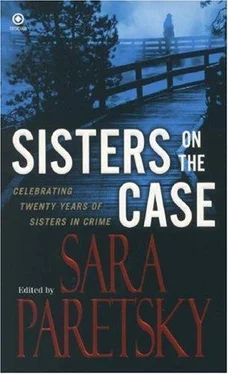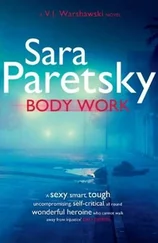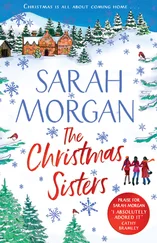‘‘It is. When I wrote the will after your dad died, the twins were out of college and she knew it was going to be a struggle for you to go. The house was appraised at a quarter million back then, so she left fifty thousand to each of your sisters and the rest- including all the contents of the house-to you. She thought you would end up with at least a hundred and fifty thousand.’’
‘‘But if the house is only worth half that now?’’
‘‘I wasn’t thinking, Carlie. Instead of a dollar amount, I should have phrased it so that your sisters each got a fifth and you got three-fifths.’’
Carlie had always been good at mental math. ‘‘That’s okay, Uncle Carlton. Maybe the house is worth more than you think. And even if it isn’t, that still leaves me with… what? Twenty-five thousand?’’
Again he shook his head. ‘‘Not after all her medical bills and funeral expenses are paid. Well, maybe your sisters will be fair-minded about the situation.’’
They both sighed then, knowing just how unlikely that was.
‘‘Oh, Carlie, how perfectly awful for you,’’ said Marsha when the will was read to them after the funeral two days later.
‘‘The fair and equitable thing would be to sell the house and its contents and split anything left over after your mother’s debts are paid,’’ said Uncle Carlton.
‘‘I wish we didn’t have to take the money,’’ said Mary, ‘‘but the boys will be starting college themselves in a few years.’’
It was no less than he had expected. Nevertheless, he was disappointed by their self-centeredness and fixed them both with a stern eye. ‘‘Just remember that the things you took from the house belong to Carlie, and she’s going to need every penny for her own education. You must return them immediately or else pay her their worth.’’
‘‘But Mom always said I was to have her silver and her diamond pin,’’ Mary protested.
‘‘And she promised me those rosewood chairs and her gold bracelets,’’ said Marsha with a stubborn look on her face.
Under different circumstances, a widowed and childless uncle might have wielded considerable influence, but a widowed and childless uncle who barely had enough to live on? When Carlie was his favorite? They would never be openly disrespectful, but as far as they were concerned, he could whistle down the wind.
‘‘It’s okay,’’ said Carlie, who hoped to avoid a rift with her sisters. ‘‘But I do want the dollhouse back.’’
‘‘Of course, sweetie,’’ said Mary, prepared to be gracious and sisterly now that talk of fairness was behind them.
‘‘We’ll even send the boys over to help you clear the house,’’ said Marsha. ‘‘They can start by getting rid of all the junk mail Mom saved. Coupons and contest forms stuffed in every cranny. ‘You may already be a winner!’ Right. And I may already be the queen of England. Do you think she was getting a little senile?’’
‘‘There was nothing wrong with your mother’s mind,’’ Uncle Carlton said sharply.
‘‘But all those magazine subscriptions from Publishers Clearing House? Come on, Uncle Carlton! Who needs twenty magazines coming into the house every month? She gave me three trial subscriptions for Christmas.’’
‘‘I know,’’ said Carlie, sensing how much their cynicism cut at the old man. ‘‘I told her that she didn’t have to buy anything to enter their sweepstakes, but she thought that increased her chances.’’
‘‘Did she honestly believe that the Prize Patrol was going to show up on her doorstep someday with a check for a million dollars?’’ asked Mary.
‘‘Hope springs eternal,’’ Carlie said lightly. ‘‘You know Mom. Remember how happy she was when the lottery finally passed last year?’’
Marsha rolled her eyes. ‘‘Not half as happy as I was. No more weird magazines. My birthday card had five scratch-off cards in it this time. I actually won seven dollars.’’
‘‘I won twelve with the ones in my card,’’ Mary said smugly.
‘‘Lucky for us that she was such a penny-ante gambler,’’ said Marsha. ‘‘I was afraid she might get in over her head, spend her grocery money on Powerball tickets.’’
‘‘No,’’ said Carlie. ‘‘Five dollars a week was her limit. She loved checking her tickets against the winning numbers. Remember how close she came to the jackpot back in January?’’
For a moment, they were united in the memory of their mother’s flushed cheeks and sparkling eyes as she told them how she had held her breath when the first five numbers precisely matched the first five on her ticket. How certain she’d been that it was her lucky day.
‘‘Eleven million dollars,’’ Carlie sighed, thinking of France.
‘‘The new jackpot’s fifty-three million,’’ said Marsha, equally wistful.
‘‘Split four ways,’’ the ever-practical Mary reminded her.
‘‘That’s still over thirteen million apiece,’’ said Carlie, doing the math in her head. ‘‘Wonder why the fourth person hasn’t come forward to claim it? It’s been at least three weeks since they announced the winning number.’’
‘‘Probably consulting an investment banker first,’’ said Uncle Carlton. ‘‘Taxes are going to take a big chunk and if they don’t have a game plan in place, the rest will melt away before they know it.’’
‘‘I’ve heard that every leech you’ve ever met comes crawling out of the woodwork,’’ said Mary as she gathered up her things to go. ‘‘ ‘I shared my candy bar with you in kindergarten, so why don’t you give me a half million for old times’ sake?’ I read about one man who won forty million and was broke and back on welfare three years later. If I ever won, I wouldn’t tell a soul.’’
‘‘Not even me?’’ asked Marsha.
‘‘Especially not you!’’ Mary’s laugh was meant to show that she was joking, but Marsha still looked miffed when they left.
True to their word, Marsha and Mary sent their teenage sons over to help, and they themselves came every evening after work to sort through the things three generations of Baxters had acquired. They even brought sandwiches and wine, and they helped dig a grave in the backyard for old Buster when he went to sleep on his rug beside their mother’s empty bed and never woke up again.
‘‘Just as well,’’ they said. ‘‘You couldn’t have taken him to your apartment.’’
True, but that did not stop her from grieving. Buster had been a part of her life since her twelfth birthday. She told herself she would have found a way to keep him even though her student apartment up at the university was too small to hold all the other things she wished she could keep. It was hard not to agonize over every teacup or knickknack that held its own special memory.
Uncle Carlton found a trustworthy appraiser who in turn recommended a buyer for all the furnishings. He was her rock when grief over what she was losing threatened to overwhelm her or when one of the twins wanted to take a particularly nice piece.
‘‘Let me see,’’ he would say, running his finger down the appraiser’s list. ‘‘Ah, here we are! Dining room. Family portrait. Original gilt frame. Twelve hundred dollars.’’
‘‘But that’s Great-grandfather Baxter with his little dog,’’ Mary cried. ‘‘He shouldn’t go out of the family.’’
‘‘You’re absolutely right,’’ he told her with an impish grin. ‘‘Offer Carlie a thousand and I bet she’ll let you have it.’’
‘‘Three hundred and fifty for that little cream pitcher?’’ Marsha was appalled.
‘‘Made around 1912 by a well-known potter, according to the appraiser,’’ Uncle Carlton said blandly, reading from the list. ‘‘If it didn’t have that chip in the handle, it’d be worth eight hundred.’’
Читать дальше












